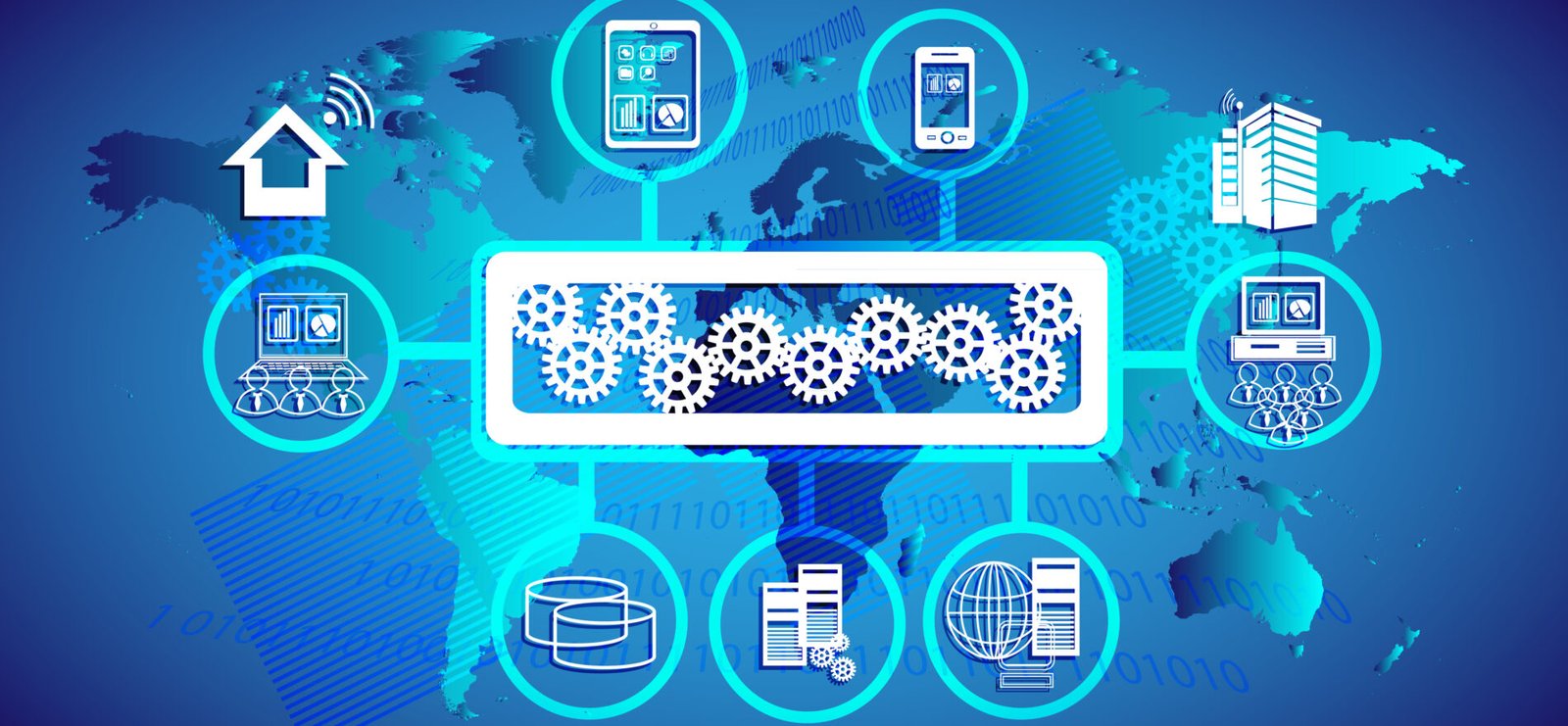VPN for Remote Work and Business
Why Businesses Should Use VPNs
In the digital age, businesses face numerous security challenges, from cyber threats to data breaches. VPNs (Virtual Private Networks) offer robust solutions to enhance security, protect privacy, and ensure compliance with regulations. Here’s an in-depth look at why businesses should use VPNs:
Enhanced Security:
- Protection Against Cyber Threats: VPNs encrypt data, making it difficult for hackers to intercept and decipher sensitive information. This encryption is crucial when employees access company resources over public or unsecured Wi-Fi networks.
- Secure Remote Access: With more employees working remotely, VPNs provide a secure connection to company resources, reducing the risk of data breaches and unauthorized access.
Data Privacy:
- Anonymous Browsing: VPNs mask the IP addresses of employees, ensuring their online activities remain private and untraceable. This anonymity helps protect sensitive business operations from being monitored or tracked.
- Preventing ISP Tracking: Internet Service Providers (ISPs) often track and log user activities. VPNs prevent ISPs from monitoring and logging the company’s internet usage, protecting business data from third-party surveillance.
Compliance with Regulations:
- GDPR and HIPAA Compliance: Businesses handling sensitive data, such as personal health information or financial records, must comply with regulations like GDPR and HIPAA. VPNs help meet these requirements by ensuring secure data transmission and protecting sensitive information from unauthorized access.
Access Control:
- Restricted Access: VPNs allow businesses to control who can access their network, ensuring only authorized personnel can reach sensitive data. This access control is crucial for maintaining the integrity and security of company resources.
Cost-Effective Solution:
- Reduced IT Costs: VPNs can reduce the need for expensive, dedicated secure networks. By providing a cost-effective solution for secure communications, VPNs help businesses save on IT infrastructure costs.
The Best VPNs for Remote Work in 2024
Choosing the right VPN for remote work is crucial for ensuring security, reliability, and efficiency. Here are the top VPNs for remote work in 2024:
NordLayer:
- Features: Tailored for businesses, integrates with existing IT infrastructure, offers centralized billing, and provides dedicated IP addresses.
- Pros: Strong security features, user-friendly management console, seamless integration with various business tools.
- Cons: Higher price point compared to consumer VPNs.
Perimeter 81:
- Features: Cloud-based VPN, zero-trust network access, seamless integration with major cloud providers, and secure remote access to company resources.
- Pros: Easy to deploy, scalable for growing businesses, comprehensive security features.
- Cons: Some advanced features may require additional configuration.
ExpressVPN:
- Features: High-speed servers, strong encryption, and robust privacy policies.
- Pros: Consistent performance, excellent customer support, proven security track record.
- Cons: More expensive than some other options.
Cisco AnyConnect:
- Features: Advanced security features, supports a wide range of devices, and integrates well with other Cisco security products.
- Pros: Trusted by large enterprises, comprehensive security, reliable performance.
- Cons: Can be complex to set up and manage without dedicated IT support.
OpenVPN Access Server:
- Features: Highly configurable, supports a wide range of operating systems and devices, offers both free and enterprise versions.
- Pros: Flexibility and control, strong security protocols, open-source option.
- Cons: Requires technical knowledge to set up and configure.
Securing Business Communications with a VPN
Ensuring secure business communications is essential to protect sensitive information and maintain confidentiality. Here’s how a VPN can help:
Encryption:
- How It Works: VPNs encrypt data in transit, making it unreadable to anyone who intercepts it. This encryption ensures that even if data is captured, it cannot be deciphered without the encryption key.
- Benefit: Ensures that emails, messages, and other communications remain private and secure, preventing unauthorized access.
Secure Remote Access:
- How It Works: VPNs create a secure tunnel between remote workers and the company’s network, protecting data as it travels over the internet.
- Benefit: Allows employees to securely access company resources from any location, maintaining productivity while protecting sensitive information.
Protection Against Interception:
- How It Works: VPNs prevent man-in-the-middle attacks by encrypting all data exchanges. These attacks occur when a malicious actor intercepts and potentially alters the communication between two parties.
- Benefit: Ensures that business communications cannot be intercepted and read by unauthorized parties, protecting the integrity and confidentiality of the information.
Secure File Sharing:
- How It Works: VPNs enable secure file sharing and collaboration through encrypted connections, ensuring that files are protected during transmission.
- Benefit: Protects sensitive documents and data from being accessed by unauthorized users, maintaining the confidentiality and security of business information.
Challenges and Solutions for Setting Up a Business VPN
Setting up a VPN for business use can come with certain challenges. Here are some common issues and their solutions:
Complex Configuration:
- Challenge: Setting up a VPN can be technically complex and time-consuming, especially for businesses without dedicated IT support.
- Solution: Choose a VPN provider with user-friendly management tools and comprehensive support. Consider hiring IT professionals or using managed VPN services to simplify the setup process.
Scalability:
- Challenge: As a business grows, the VPN infrastructure must scale accordingly to accommodate more users and devices.
- Solution: Opt for scalable VPN solutions that can grow with your business, such as cloud-based VPNs or VPNs that offer flexible subscription plans. Ensure the chosen VPN can handle increased traffic without compromising performance.
Performance Issues:
- Challenge: VPNs can sometimes slow down internet speeds due to encryption overhead and server load.
- Solution: Use high-speed servers optimized for performance, optimize VPN settings, and choose VPN providers known for minimal speed impact. Regularly monitor and manage server load to ensure optimal performance.
User Education:
- Challenge: Employees may not be familiar with VPN usage or best practices, leading to potential security risks.
- Solution: Provide training and resources to educate employees on how to use the VPN effectively and securely. Conduct regular security awareness sessions to reinforce the importance of VPN use and best practices.
Compliance:
- Challenge: Ensuring the VPN complies with industry-specific regulations and standards can be complex.
- Solution: Select VPN providers that offer features aligned with regulatory requirements and regularly update their compliance practices. Work with legal and compliance experts to ensure the VPN setup meets all necessary regulations.
Using VPNs to Protect Sensitive Company Data
Protecting sensitive company data is paramount, and VPNs play a crucial role in this. Here’s how VPNs help safeguard sensitive information:
Data Encryption:
- How It Works: VPNs use strong encryption protocols (e.g., AES-256) to secure data in transit, making it unreadable to anyone who intercepts it.
- Benefit: Prevents unauthorized access and data breaches by ensuring that intercepted data is unreadable and useless without the encryption key.
Secure Access to Internal Resources:
- How It Works: VPNs allow employees to securely connect to the company’s internal network, accessing files, applications, and other resources as if they were on-site.
- Benefit: Protects sensitive information by ensuring that only authorized users can access critical business applications and data, maintaining data integrity and confidentiality.
Remote Work Security:
- How It Works: VPNs create a secure connection for remote workers accessing company resources from various locations, protecting data from being compromised over public or unsecured networks.
- Benefit: Ensures that sensitive data remains protected, even when accessed over potentially insecure networks, supporting secure remote work practices.
Preventing Data Leakage:
- How It Works: VPNs can enforce security policies and prevent data from being transmitted outside the secure network, reducing the risk of data leakage.
- Benefit: Protects sensitive company information from being exposed or accessed by unauthorized users, ensuring compliance with data protection regulations.
Monitoring and Logging:
- How It Works: Some business VPNs offer monitoring and logging features to track network activity and identify potential security threats.
- Benefit: Helps identify and respond to suspicious activities, ensuring the security of sensitive data and maintaining an audit trail for compliance purposes.
Final Thoughts
Incorporating a VPN into your business infrastructure is essential for ensuring the security and privacy of your company’s data and communications. By choosing the right VPN, understanding how to secure your network, and addressing potential challenges, you can protect sensitive information and enable secure remote work. VPNs offer a cost-effective solution for enhancing security, protecting privacy, and ensuring compliance with regulations. Stay connected with Guru4K for the latest insights and tips on using VPNs for business and remote work!




